Gasoline is a toxic substance that can cause serious health problems when inhaled, even in small amounts. Whether you’ve accidentally breathed in gasoline fumes while filling your car or you’re concerned about workplace exposure, understanding the risks and knowing how to respond is crucial. This comprehensive guide explains the immediate and long-term effects of gasoline inhalation, emergency response measures, and prevention strategies to keep you and your family safe.
If You Suspect Gasoline Poisoning
If you or someone else has inhaled gasoline and is experiencing severe symptoms, call 911 immediately.
Immediate Effects of Gasoline Inhalation
Dizziness is often one of the first symptoms experienced after inhaling gasoline fumes
When you inhale gasoline vapors, the hydrocarbons enter your bloodstream through your lungs. These chemicals can quickly affect your central nervous system and other organs. The severity of symptoms depends on the concentration of fumes and duration of exposure.
Common Immediate Symptoms
- Dizziness and lightheadedness
- Headache, often severe
- Nausea and vomiting
- Coughing and throat irritation
- Difficulty breathing
- Facial flushing
- Blurred vision
- Confusion and disorientation
- Staggering or unsteady movements
- Slurred speech
These symptoms typically appear within minutes of exposure. Even brief exposure to concentrated gasoline vapors can cause noticeable effects on your nervous system and respiratory tract.
Common Scenarios for Accidental Gasoline Inhalation
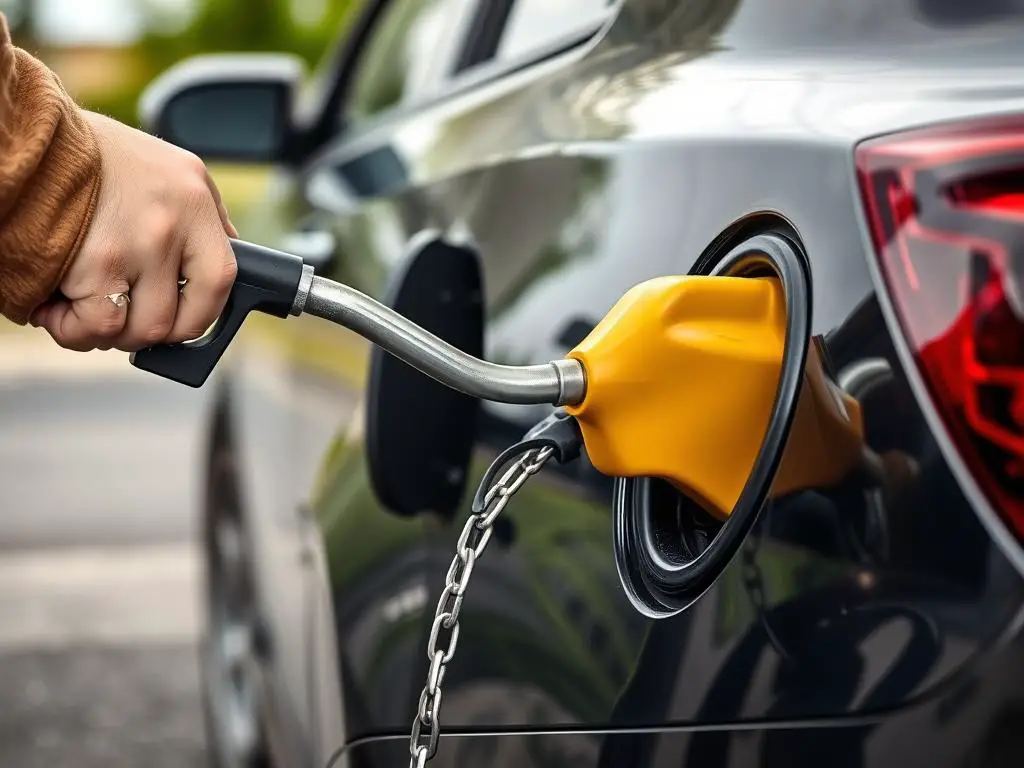
Fueling Vehicles
Standing too close to the pump while refueling, especially on hot days when gasoline evaporates more quickly, can lead to significant vapor inhalation.
Siphoning Gasoline
Using your mouth to create suction when transferring gas between containers or vehicles is extremely dangerous and commonly leads to accidental ingestion and inhalation.
Confined Spaces
Working with gasoline or gas-powered equipment in garages, basements, or other poorly ventilated areas significantly increases exposure risk.
Short-Term Health Consequences
Beyond the immediate symptoms, gasoline inhalation can lead to more serious short-term health problems, especially with higher concentrations or longer exposure times.
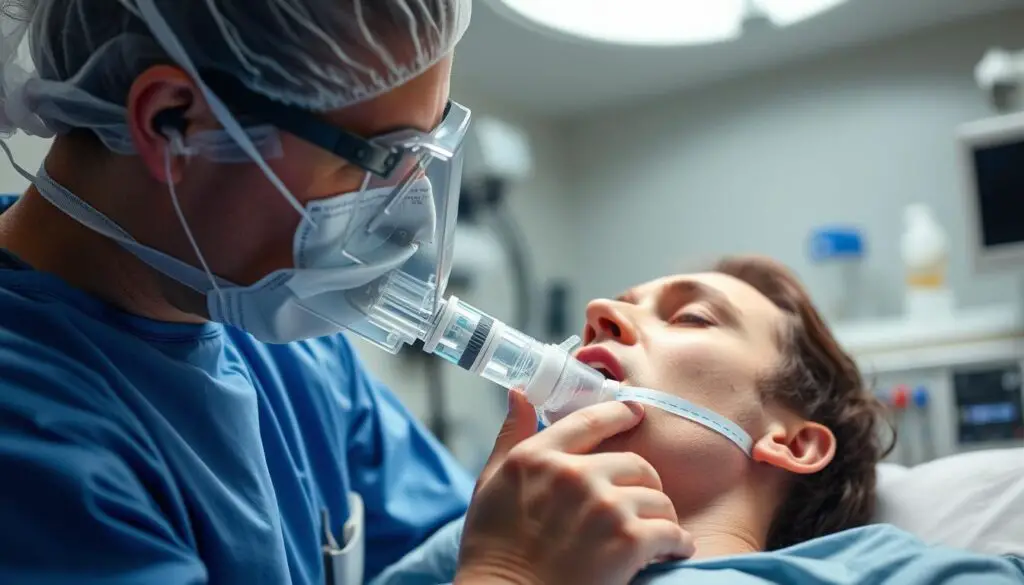
Moderate to Severe Exposure Effects
- Respiratory issues: Chemical pneumonitis (inflammation of lung tissue) can develop when gasoline vapors irritate the lungs.
- Central nervous system depression: Higher exposures can lead to drowsiness, weakness, and in severe cases, loss of consciousness.
- Cardiac arrhythmias: Gasoline exposure can cause irregular heartbeat, especially in people with pre-existing heart conditions.
- Seizures: In cases of significant exposure, the toxic effects on the brain can trigger convulsions.
- Chemical burns: The lungs and airways can sustain damage similar to burns from the harsh chemicals in gasoline.
Carbon Monoxide Risk
Gasoline engines produce carbon monoxide, an odorless, colorless gas that can be deadly. Never run engines in enclosed spaces, as carbon monoxide poisoning can occur alongside gasoline vapor exposure.
Long-Term Health Implications
Repeated or chronic exposure to gasoline vapors can lead to persistent health problems that may develop over time. Workers in industries with regular gasoline exposure face higher risks of these long-term effects.

Chronic Exposure Consequences
Neurological Effects
- Memory problems and cognitive impairment
- Coordination difficulties
- Persistent headaches
- Tremors and involuntary movements
Organ Damage
- Liver and kidney dysfunction
- Chronic respiratory conditions
- Potential increased cancer risk
- Blood disorders
According to research, workers with daily exposure to gasoline and similar fuels may experience subtle neurological changes over time, even when exposure levels are within regulatory limits.
Emergency First Aid for Gasoline Inhalation

Knowing the proper first aid response can significantly reduce the health impact of gasoline inhalation. Follow these steps if you or someone else has inhaled gasoline fumes:
Immediate Steps to Take
- Move to fresh air immediately. Get away from the source of gasoline fumes and into an open, well-ventilated area.
- Call for help. Contact Poison Control at 800-222-1222 for guidance, even if symptoms seem mild.
- Loosen tight clothing. Loosen collars, belts, and other restrictive clothing to help maintain normal breathing.
- Rest in a half-sitting position. This position helps ease breathing difficulties.
- Do not induce vomiting if gasoline was also swallowed, as this increases the risk of aspiration into the lungs.
Important: Do NOT
- Give the affected person anything to drink if they’re unconscious or severely disoriented
- Attempt to neutralize the gasoline with other chemicals
- Delay seeking medical help if symptoms are severe or worsening
- Return to the contaminated area without proper protection
When to Seek Medical Attention

While mild exposure with minimal symptoms may resolve with fresh air, certain situations require immediate professional medical care.
Seek Emergency Medical Care If:
- Breathing difficulties persist or worsen
- The person loses consciousness or has seizures
- Confusion or disorientation is severe
- Chest pain or irregular heartbeat develops
- Vomiting occurs after inhalation (risk of aspiration)
- The exposure occurred in a confined space
- The person has pre-existing respiratory or heart conditions
Medical Treatment Approaches
There is no specific antidote for gasoline poisoning. Medical treatment focuses on supportive care and addressing specific symptoms:
Respiratory Support
Oxygen therapy, breathing treatments, or in severe cases, mechanical ventilation may be necessary to support lung function.
Cardiac Monitoring
Healthcare providers will monitor heart function, as gasoline exposure can cause irregular heartbeats and other cardiac issues.
Neurological Assessment
Doctors will evaluate central nervous system effects and provide appropriate treatment for seizures or other neurological symptoms.
Prevention and Safety Measures
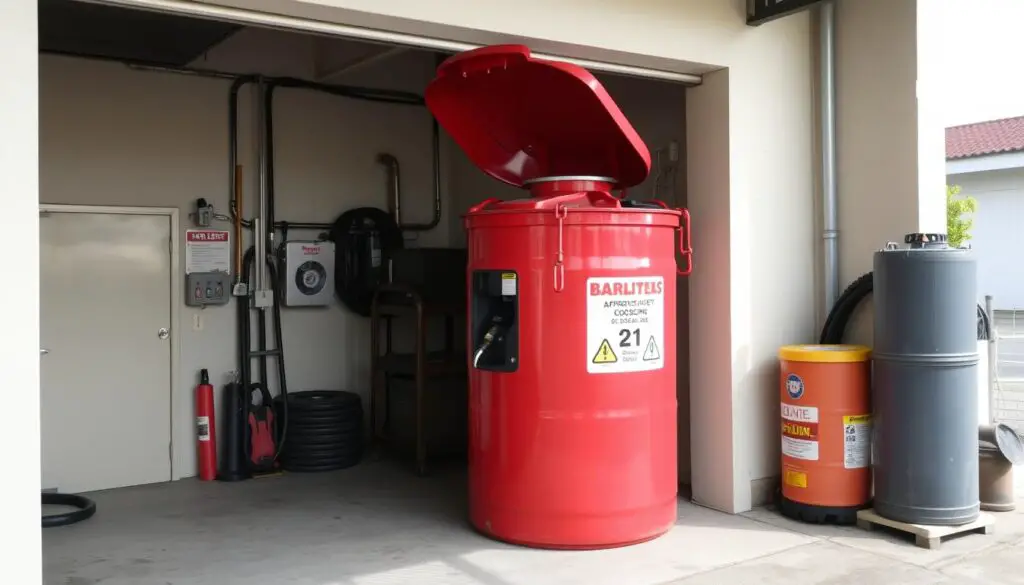
Preventing gasoline inhalation is always preferable to treating its effects. Follow these safety guidelines when handling gasoline:
Safe Gasoline Handling Practices
- Always fuel vehicles and equipment in well-ventilated areas
- Stand upwind when pumping gas
- Use proper siphoning devices with pumps (never use your mouth)
- Store gasoline in approved containers away from living spaces
- Keep gasoline containers tightly sealed when not in use
- Wear protective gloves when handling gasoline
- Consider wearing a mask when extended exposure is unavoidable
Dangerous Practices to Avoid
- Using gasoline as a cleaning agent or degreaser
- Running engines in enclosed spaces like garages
- Smoking or using open flames near gasoline
- Storing gasoline in unapproved containers
- Leaving gasoline containers open
- Using mouth suction to siphon gasoline
- Allowing children access to areas where gasoline is stored
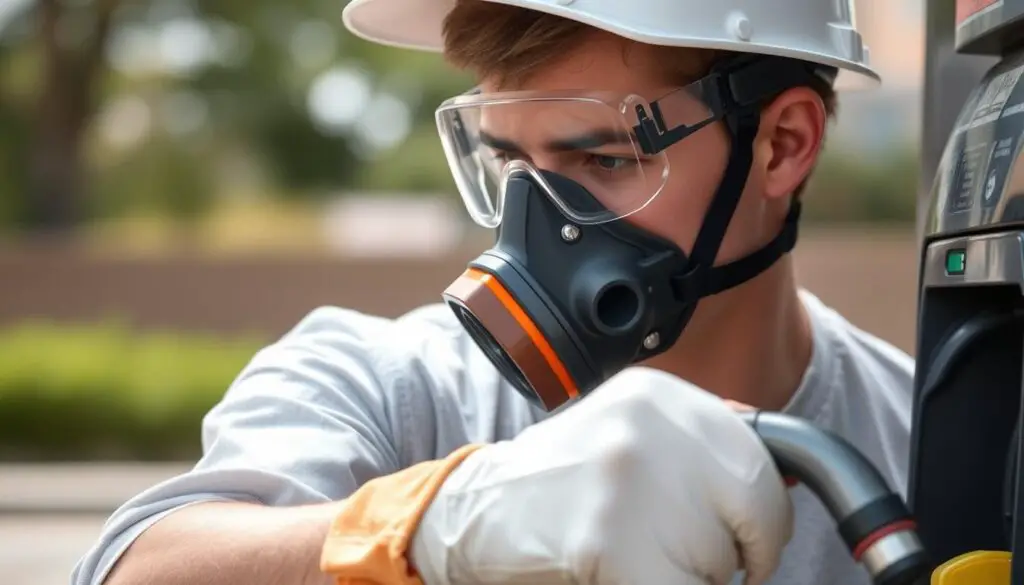
Workplace Safety
If you work with gasoline or in environments where exposure is common:
- Follow all workplace safety protocols and training
- Use provided personal protective equipment (PPE)
- Ensure adequate ventilation in work areas
- Take regular breaks in fresh air when working with gasoline
- Report any safety concerns or symptoms to supervisors immediately
- Participate in workplace health monitoring programs
Special Considerations for Vulnerable Groups

Certain populations may be more vulnerable to the effects of gasoline inhalation and require additional precautions:
Children
Children are especially susceptible to gasoline vapors because:
- Their developing nervous systems are more sensitive to toxins
- They have higher respiratory rates, leading to greater inhalation of vapors
- They may not recognize or report symptoms
- Their smaller body mass means toxins have greater effects
Child Safety Tips
Keep all gasoline and fuel containers locked away from children’s access. Never allow children near fueling operations, and teach them about the dangers of gasoline from an early age.
Pregnant Individuals
Pregnant people should take extra precautions:
- Avoid all unnecessary exposure to gasoline fumes
- Have someone else pump gas when possible
- Stay upwind and as far from pumps as possible when at gas stations
- Report any exposure to healthcare providers, even if symptoms seem mild
People with Pre-existing Conditions

Those with certain health conditions face higher risks from gasoline exposure:
Respiratory Conditions
People with asthma, COPD, or other lung diseases may experience severe exacerbations from even brief gasoline exposure.
Heart Conditions
Those with cardiac issues may be more susceptible to the arrhythmia-inducing effects of gasoline vapors.
Liver or Kidney Disease
These organs help filter toxins, and pre-existing damage may reduce the body’s ability to process gasoline compounds.
Neurological Disorders
People with existing neurological conditions may experience worsened symptoms after gasoline exposure.
Frequently Asked Questions About Gasoline Inhalation
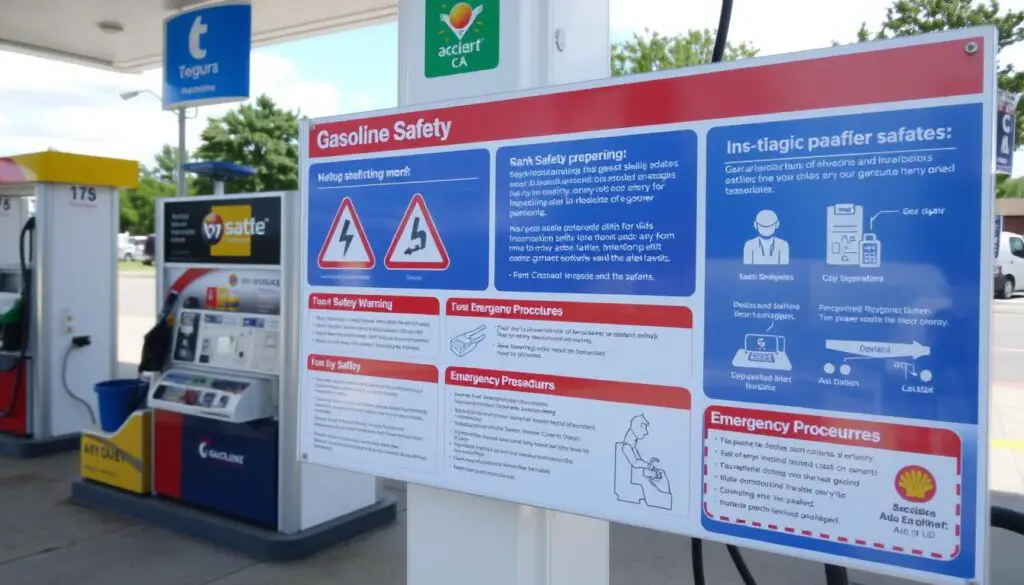
How long do gasoline fumes stay in your system?
Most gasoline compounds begin to clear from the body within 12-24 hours after exposure ends. However, some components may be stored in fat tissue and released slowly over days or weeks. The smell of gasoline may remain on your breath for up to 24 hours after significant exposure.
Can you get carbon monoxide poisoning from gasoline fumes?
Gasoline fumes themselves don’t contain significant amounts of carbon monoxide. However, running gasoline engines (especially in enclosed spaces) produces carbon monoxide, which can cause poisoning alongside the effects of gasoline vapor exposure. This is why you should never run engines in garages or other enclosed areas.
Is it dangerous to smell gasoline briefly while refueling?
Brief exposure to low concentrations of gasoline vapors during normal refueling is generally not harmful for most healthy adults. However, it’s still best to minimize exposure by standing upwind of the pump, avoiding deep inhalation, and not lingering near the fueling area.
What should I do if I spill gasoline on my skin?
Immediately remove any clothing that has gasoline on it and wash the affected skin thoroughly with soap and warm water for at least 15 minutes. If skin irritation, redness, or other symptoms develop and persist, seek medical attention. Remember that gasoline can also be absorbed through the skin.
Conclusion
Gasoline inhalation poses significant health risks ranging from temporary discomfort to serious, potentially life-threatening conditions. Understanding the dangers, knowing how to respond to exposure, and implementing preventive measures are essential for protecting yourself and others.
If exposure occurs, remember the key steps: move to fresh air, call Poison Control at 800-222-1222 for guidance, and seek emergency medical care for severe symptoms. With proper knowledge and precautions, most gasoline-related health incidents can be prevented or effectively managed.


